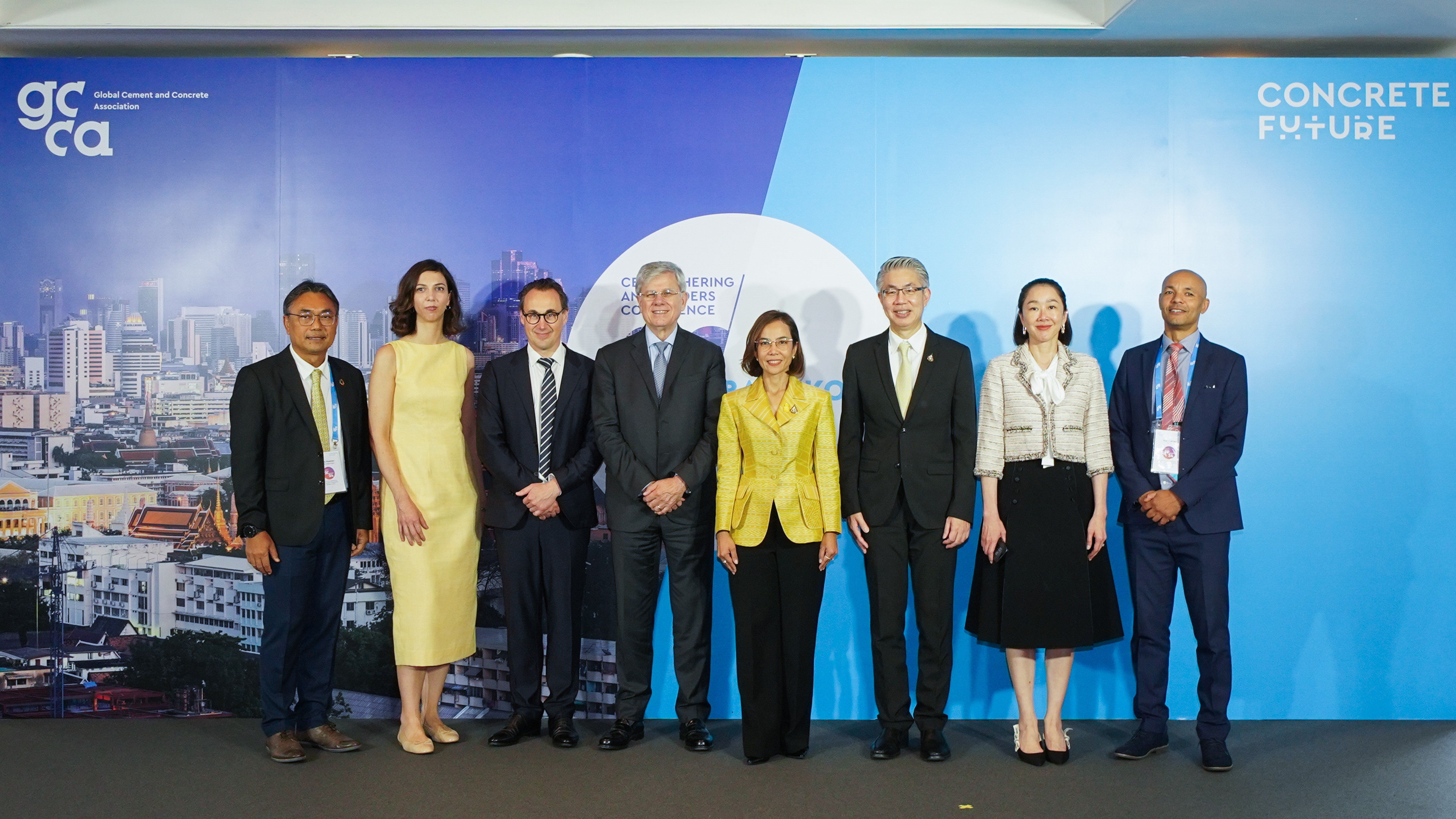Turning the tide on climate change: decarbonizing Thailand’s cement and concrete sectors
04 June 2024

The Government of Canada and the United Nations Industrial Development Organization (UNIDO) are joining forces to promote and accelerate decarbonization opportunities in the cement and concrete sectors in Thailand, to help the country meet its Nationally Determined Contribution (NDC) under the Paris Agreement.
The announcement came as more than 150 CEOs and leading figures from the global cement and concrete industry met in Bangkok for the CEO Gathering and Leaders Conference, organized by the Global Cement and Concrete Association (GCCA), focused on net-zero transition.
The Thai Government has been working closely with the country’s cement and concrete industry and the Thai Cement Manufacturers Association on how to decarbonize the sector and is now one of the first countries in the world with a credible national roadmap for delivering on the industry’s net-zero commitments.
A combination of technical assistance and investment support will be given to Thailand to help develop decarbonization-centric policies, a regulatory framework and a country-driven national and industrial net-zero roadmap. In addition, the project will support effective monitoring, as well as review and verification systems for the cement and concrete sectors and provide guidance on developing green public procurement targets and standards for low-carbon cement and concrete.
UNIDO Director General, Gerd Müller, said: "Industrial decarbonization presents great opportunities to strongly reduce emissions and make major contributions to reaching our global net-zero emissions targets. But we need to make sure that these technologies are shared and made accessible to all, because they are absolutely critical to building environmentally and economically sustainable industries - the time to act is now."
The Minister of Environment and Climate Change of Canada, Steven Guilbeault, said: "Keeping 1.5C within reach requires creating clean technology opportunities across key polluting sectors, including cement and concrete. That’s why we are working with the United Nations Industrial Development Organization (UNIDO) to support Thailand in its efforts to decarbonize its cement and concrete sector, as part of Canada’s commitment to the Breakthrough Agenda. Reducing greenhouse gas emissions in the cement and concrete industry will unlock significant economic opportunities, all while helping meet pollution reduction goals. Carbon pollution knows no borders and Canada looks forward to working with Thailand to make its ambition a success."
The Minister of Industry of Thailand, Pimphattra Wichaikul, underlined: “I welcome the partnership and announcement of new funding - 8 million Canadian dollars - from the Government of Canada through the United Nations of Industrial Development Organization to pay for key projects and research that will accelerate decarbonization of the cement sector here in Thailand as well as other South Asian countries. It is a very positive step along our shared decarbonization pathway. Together, we can and will deliver.”
The GCCA’s CEO, Thomas Guillot, said: “Cement is the glue that binds together concrete, and concrete is the glue that binds together modern society. It’s vital for so much of our modern infrastructure, which is why we are fully committed to decarbonizing the world’s most used man-made material. But our industry needs the support of wider players including government and multilateral organisations such as UNIDO, especially in the developing world. We are delighted by this announcement and look forward to working further with all parties.”
Over the next three years, grant support will be provided for pilot demonstrations to deploy and commercialize low-carbon technological solutions in the cement and concrete sectors and to strengthen the innovation accelerator ecosystem. The latter will support local homegrown solutions that have a strong greenhouse gas emissions reduction potential, helping local entrepreneurs to connect their solutions to the market by linking actors across the innovation acceleration sphere and by leveraging UNIDO’s international network of partners.
The project will also support capacity building and pilots that can be co-financed or scaled up through private finance, as well as providing training to develop expertise and industrial skills, and to produce and disseminate knowledge. Sharing knowledge can help countries such as Indonesia, Malaysia, Philippines and Vietnam to replicate and scale-up successful business models.
The project is an important part of delivering UNIDO’s work on the Industrial Deep Decarbonization Initiative (IDDI) that works with national governments to create a market for low-carbon industrial products such as iron, steel, cement and concrete, and will further build on synergies with Glasgow Breakthrough on Cement and Concrete, currently co-chaired by Canada.
UNIDO’s Müller added, "UNIDO is committed to supporting developing countries in sustainable economic and industrial development. In working towards this goal, we greatly appreciate and welcome the support from the Government of Canada to help decarbonize industries in Thailand. This unique cooperation between UNIDO, the Government of Canada and the Government of Thailand will contribute to much needed climate change mitigation and to achieving the Sustainable Development Goals.”
For further information, contact:
Katarina Barunica, Industrial Development Officer, Energy Systems and Decarbonization Unit, UNIDO